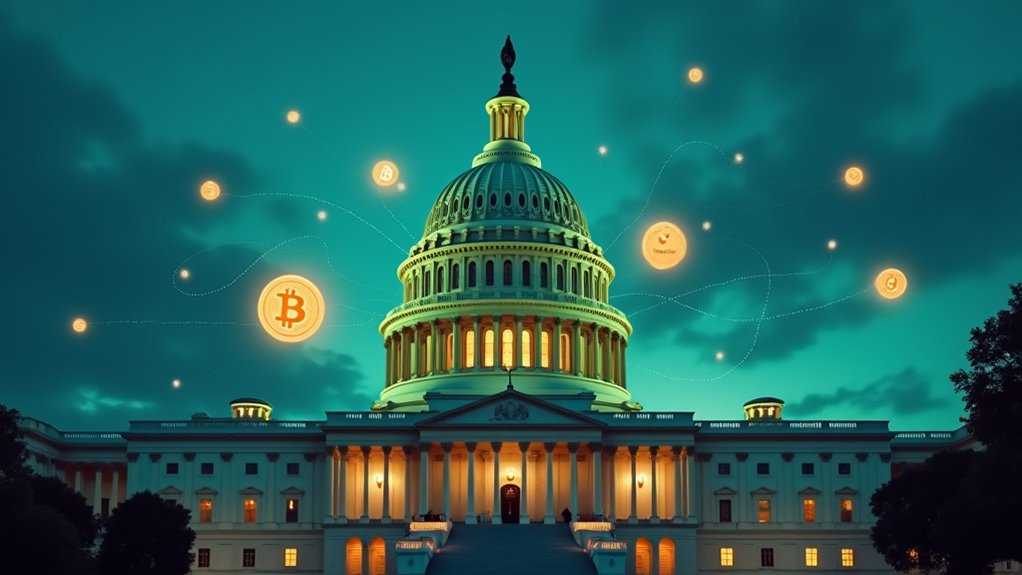After months of political theater and backroom deals, Congress finally passed its first major federal crypto law – the GENIUS Act. The legislation, signed by President Trump in July 2025, establishes thorough regulations for stablecoins and aims to legitimize the digital asset sector within the U.S. financial system.
Getting here wasn’t pretty. House Republicans fought like cats in a sack, with right-wing holdouts trying to link the bill to everything under the sun – including a ban on central bank digital currency. Speaker Mike Johnson had to hit pause on votes while President Trump played peacemaker in closed-door meetings. The final vote saw 308 to 122 passage with support from both parties. Who knew crypto could cause such drama?
Congressional crypto chaos: Republicans brawling over regulations while Trump plays referee in backroom negotiations to save the bill.
The law sets federal standards for stablecoin issuance and governance. No more wild west shenanigans – stablecoin providers now have to prove they’ve got actual assets backing their digital tokens. Regular audits, transparent disclosures, the whole nine yards. It’s almost like they want people to trust cryptocurrency or something. The new requirements aim to prevent algorithmic stablecoin failures like the devastating TerraUSD collapse.
Alongside the GENIUS Act came the Clarity Act, which finally settled the turf war between regulators. The CFTC gets commodities, the SEC gets securities. Simple enough, right? Well, it only took Congress forever to figure that out. The new rules also crack down on sketchy practices like self-dealing and conflicts of interest within crypto platforms. Trump emphasized that stablecoins represent a financial technology revolution during the historic signing.
Critics aren’t all sunshine and rainbows about this. Some warn the legislation might actually weaken existing financial rules, claiming it caters more to industry bigwigs than protecting average Joe’s crypto wallet. Democrats were split – some grudgingly admitted regulation was overdue, while others fought it tooth and nail.
The crypto industry is practically doing cartwheels. Clear operational guidelines? Check. Better shot at partnering with traditional financial institutions? Double check.
But here’s the kicker – all this fancy regulation only matters if it’s actually enforced. For now, the U.S. has planted its flag in the crypto wild west. Whether that’s genius or madness remains to be seen.





